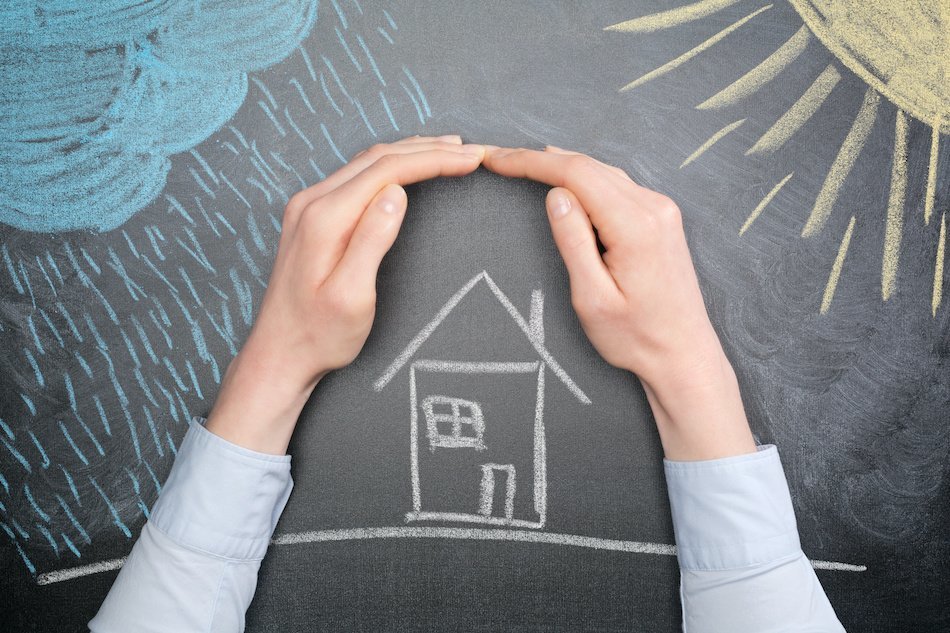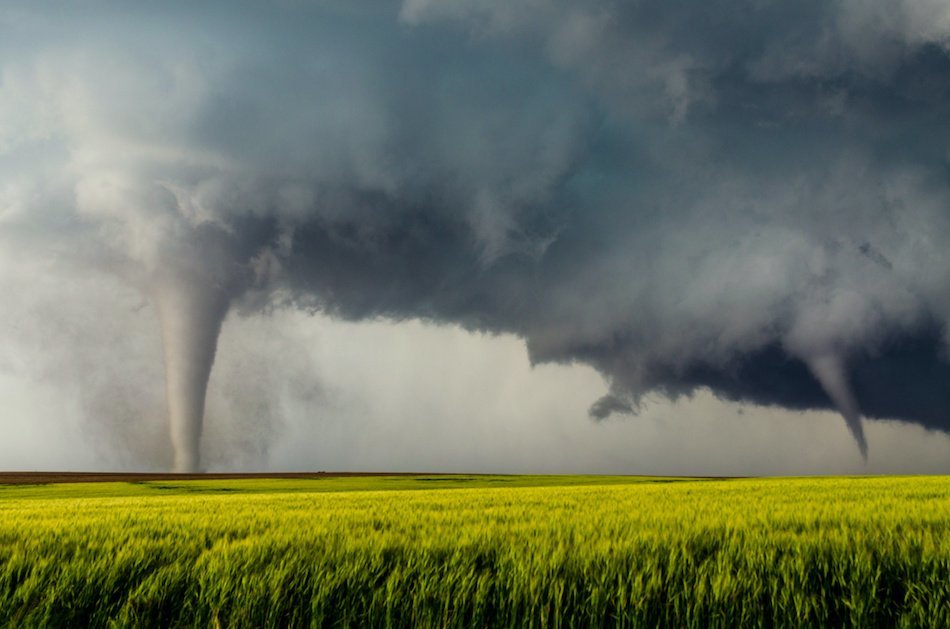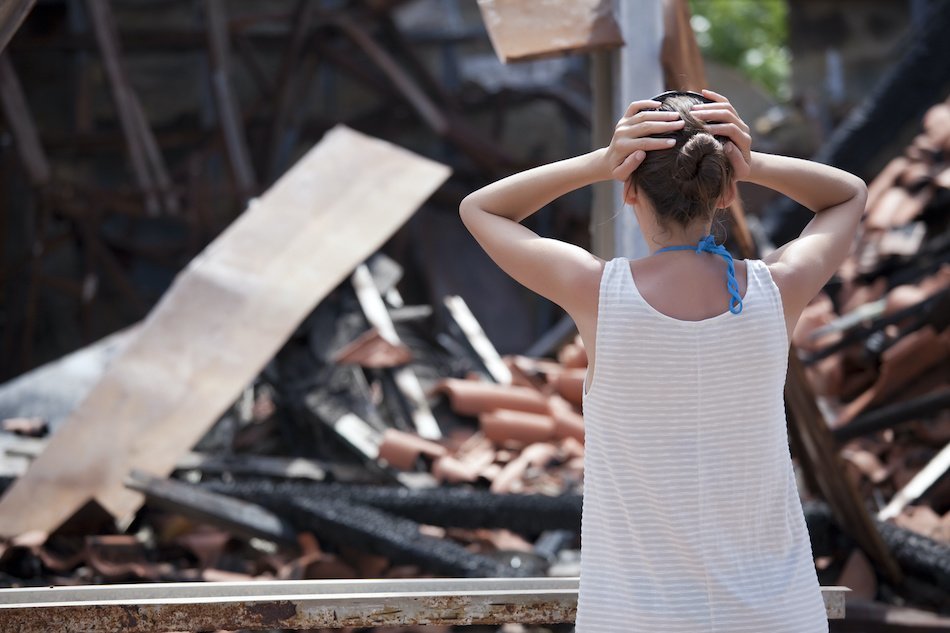Is Your Home Underinsured? How to Prevent Financial Loss From Underinsurance On Your Home
Posted by Gary Ashton on Thursday, April 9th, 2020 at 4:36pm.
 With the recent tornadoes that ripped through Nashville, many Tennessee residents sustained significant property damage, while others became more aware of the importance of taking steps to protect their homes and belongings.
With the recent tornadoes that ripped through Nashville, many Tennessee residents sustained significant property damage, while others became more aware of the importance of taking steps to protect their homes and belongings.
How can you protect your home if it's in danger of damage or destruction? What happens if your home is underinsured? What insurance policies offer the best coverage to protect you should the worst happen to your home? Learn more now on how to protect your home with proper insurance coverage and proactive planning.
The Dangers of Being Underinsured
The threat of underinsurance is often in the back of peoples' minds if it's even on the radar at all. After all, most days, nothing happens to their homes. Most days, there isn't a break-in, no tornadoes come through, and no fires burn down their residence. There are bills to pay, and insurance premiums are expensive, so it's easy to be lulled into a false sense of security that current insurance levels are fine, even if they don't represent the full value of the home or protect against all types of damage.
This line of thinking can be catastrophic when a disaster rolls in. For example, if a home insurance policy is purchased covering a home worth $200,000, that home is generally protected for that amount by a Replacement Cost policy. However, with market appreciation, home improvements, and other upgrades, that home may in time come to be valued at an amount hundreds of thousands of dollars higher.
Should the policy never be updated to reflect the new value of the home, an Act of God or other unforeseen event could destroy the home and leave homeowners without any recourse for their lost value. Even if their home is valued at $600,000 at the time it was destroyed, they would only receive a compensation equal to what the home was insured for. The $400,000 difference in value would be the responsibility of the homeowners to shoulder.
Options to Protect Your Home Via Insurance if It is Destroyed
This devastating situation is one that can—and does—happen when natural disasters and other catastrophic events sweep through cities. To avoid the financial ruin that would stem from under-insurance, here is a breakdown of a few different insurance policy options and an analysis of which ones are the best suited to ensure the value of your home is protected through whatever the world throws at it.
Replacement Cost
Replacement Cost is a form of home insurance coverage that insures your home for a fixed, pre-set value stated in your home insurance policy. This form of insurance coverage is one of the more affordable options, and it can be an effective means of protecting your home so long as you're diligent about updating your policy as the value of your home changes.
Extended Replacement Cost
An Extended Replacement Cost policy generally pays up to 120% of your insured dwelling cost should your house be destroyed. This policy offers more protection when your house appreciates in value without the risk of losing money if the assessed value has fallen out of date. This policy would allow for a home insured for $200,000 to be replaced at a value of up to $240,000, so precautions will still need to be made to keep your insurance policy updated to reflect the actual value of your home.
Guaranteed Dwelling Replacement
A Guaranteed Dwelling Replacement is the most protective form of insurance homeowners can have on their policy in the event of their home being damaged or destroyed. A Guaranteed Dwelling Replacement, or GDR, will pay for anything above the limit as needed in order to reconstruct the house as it was prior to destruction. Though this policy is more expensive, it offers more assurance and peace of mind to homeowners in the event of a tragedy.
Recommended Policy Minimums Against Home Destruction
 For homeowners who want peace of mind and the assurance that they can replace their home no matter its cost, many insurance companies recommend either having 150% Extended Replacement Cost or Guaranteed Dwelling Replacement to protect the home.
For homeowners who want peace of mind and the assurance that they can replace their home no matter its cost, many insurance companies recommend either having 150% Extended Replacement Cost or Guaranteed Dwelling Replacement to protect the home.
Other Precautions to Check to Avoid Being Underinsured
Of course, total destruction of a home isn't the only way homeowners can come face to face with underinsurance. Property damage also plays a huge role in insuring a home, and homeowners need to do what they can to protect their home. Here are a few elements of an insurance policy that homeowners should also update to best protect their home.
Roof Insurance
With the impact the storm has left upon the residents of Nashville, many are learning the hard way what their insurance covers in terms of roof damage and repair.
Actual Cash Value (ACV) insurance policies will pay consumers for the replacement costs of a roof, minus any applicable depreciation costs. What this means is that the value of a roof decreases by a certain amount every year due to wear and tear sustained since the roof was installed. This depreciating cost schedule can drastically affect the amount homeowners could receive should their roof be damaged.
Replacement cost value (RCV) policies, on the other hand, will pay the amount that the damaged or destroyed roof would cost in today's money without factoring in deductibles. Not all dwellings will qualify for the RCV benefits, but the age of the roof does not affect the payment in any way. Consumers should fully read through each of these policies to decide which is best for their situation.
Open Peril Contents
Open Peril coverage is advantageous for homeowners because it insures their home against unnamed threats that could damage their home or their personal belongings within. Unlike Named Peril coverage, which requires the damages to have been caused by a form of destruction on an itemized list, Open Peril coverage allows more flexibility in coverage for what the homeowners need. Fire, lightning, windstorm, hail, theft, and smoke are commonly named perils, but it's important to check the individual policy to see what is covered.
Loss of Use
Loss of use coverage provides financial compensation for additional living expenses incurred beyond your normal costs when a home is no longer habitable. Whether through mold, destruction of property, physical damage, or any other damage, Loss of Use would cover rent and food expenses incurred from not having access to a kitchen.
Sewer & Water Backup
Water Backup Coverage protects the home and any personal property when there are sewage or sump pump backups that cause flooding within the home. Though many forms of water damage are included in standard insurance policies, water backup falls outside that coverage and should be added on to any home insurance policy.
Sinkhole
Sinkhole coverage isn't required in every state, but there are many areas where it's recommended to take out this policy to protect your home. Sinkhole collapses, which form when underground water dissolves rock, can swallow entire houses whole, resulting in a total loss of the home. Tennessee is one of the states with frequent sinkhole activity, so it's recommended to explore putting this coverage on any policy.
Earthquake
Earthquakes can cause significant damage to a home's structure or even outright destroy it. They can damage foundations and collapse walls, and they may even destroy furnishings and the contents of the home. Because of this, earthquake insurance is an appealing addition to seek out on your insurance policy. It can be pricey, however, so it may only be worthwhile if it's affordable.
Coverage of Contents of Home
Home Contents insurance covers in-home property if it's destroyed or stolen. A home is valuable, but oftentimes, the contents of the home are what hold real value for homeowners, so it's important to insure those belongings as well. These policies also frequently cover personal property of guests, but not those of tenants or non-family boarders, who will need to take out renters insurance or their own policy to protect their belongings. Some items may need to be specially insured—especially if they have significant value.
60% of United States Homeowners Are Underinsured
 Recent statistics show that 60% of United States homeowners are missing up to 17% of potentially much-needed insurance coverage on their homes. For many homeowners, this shortfall can be attributed to simple oversight: many consumers fail to purchase the coverage they need because they don't realize that replacement costs differ from the market price of their homes. This can put such consumers in a difficult position when it comes to rebuilding after a natural disaster.
Recent statistics show that 60% of United States homeowners are missing up to 17% of potentially much-needed insurance coverage on their homes. For many homeowners, this shortfall can be attributed to simple oversight: many consumers fail to purchase the coverage they need because they don't realize that replacement costs differ from the market price of their homes. This can put such consumers in a difficult position when it comes to rebuilding after a natural disaster.
Speak With a Qualified Insurance Representative Today
As more and more homes are being constructed in areas seeing the effects of disasters, it is important for homeowners to understand exactly how much their property costs, and that they are insured for the right amount. Changes in building codes, shortages of building materials, and higher labor costs are all unforeseen factors that could increase the costs needed for replacements in a home. If the homeowner has come up short on insurance, the claims they have received may not be enough to cover these factors if and when they should become relevant.
If you have any questions about your insurance policy, connect with your insurance representative to learn more.

Gary Ashton
The Ashton Real Estate Group of RE/MAX Advantage
The #1 RE/MAX team in the World!
